 Crime
Crime  Crime
Crime  Technology
Technology 10 Hilariously Over-Engineered Solutions to Simple Problems
 Miscellaneous
Miscellaneous 10 Ironic News Stories Straight out of an Alanis Morissette Song
 Politics
Politics 10 Lesser-Known Far-Right Groups of the 21st Century
 History
History Ten Revealing Facts about Daily Domestic Life in the Old West
 Weird Stuff
Weird Stuff 10 Everyday Products Surprisingly Made by Inmates
 Movies and TV
Movies and TV 10 Actors Dragged out of Retirement for One Key Role
 Creepy
Creepy 10 Lesser-Known Shapeshifter Legends from Around the World
 Animals
Animals 10 Amazing Animal Tales from the Ancient World
 Gaming
Gaming 10 Game Characters Everyone Hated Playing
 Crime
Crime 10 Terrifying Serial Killers from Centuries Ago
 Technology
Technology 10 Hilariously Over-Engineered Solutions to Simple Problems
 Miscellaneous
Miscellaneous 10 Ironic News Stories Straight out of an Alanis Morissette Song
Who's Behind Listverse?

Jamie Frater
Head Editor
Jamie founded Listverse due to an insatiable desire to share fascinating, obscure, and bizarre facts. He has been a guest speaker on numerous national radio and television stations and is a five time published author.
More About Us Politics
Politics 10 Lesser-Known Far-Right Groups of the 21st Century
 History
History Ten Revealing Facts about Daily Domestic Life in the Old West
 Weird Stuff
Weird Stuff 10 Everyday Products Surprisingly Made by Inmates
 Movies and TV
Movies and TV 10 Actors Dragged out of Retirement for One Key Role
 Creepy
Creepy 10 Lesser-Known Shapeshifter Legends from Around the World
 Animals
Animals 10 Amazing Animal Tales from the Ancient World
 Gaming
Gaming 10 Game Characters Everyone Hated Playing
Top 10 Crazy Ways To Get Free Food In The UK
Some say that there is no such thing as a free meal – but those people just haven’t tried hard enough. The ancient Romans said that the public could be entertained with bread and circuses and giving away free food has always been a good way to ensure popularity. Over the centuries the UK has built up a huge number of traditions that result some lucky people ending up with free food.
2020 has been a tough year for everyone so here are ten ways you can get fed for free.
Top 10 Disgusting Foods Westerners Eat
10 St Briavels
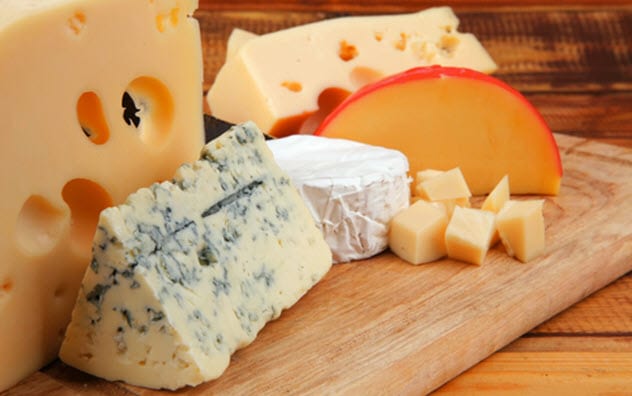
Usually the best food you can expect in an Anglican church is a little cracker and some wine. But every year at the church in the small village of St Briavels you might be lucky enough to get pelted with bread and cheese.
Each year a vicar is invited to deliver a sermon in which they only get paid if the congregation cheers at then end. Then, in a tradition dating from the 12th century, selected locals take baskets containing small cubes of cheese and bread to the top of a wall known as the Pound Wall. Dole Claimers then gather at the base of wall and wait for food to rain down on them.
Some people use upturned umbrellas to ensure that they catch something without the food touching the ground. Strangely most don’t actually eat the bread or cheese but preserve them and keep them as good luck charms. Miners once thought the food would stop mine collapses. Today the cubes of food are put in matchboxes and placed under pillows to allow people to dream about the future.[1]
9 Farthing Loaf Day
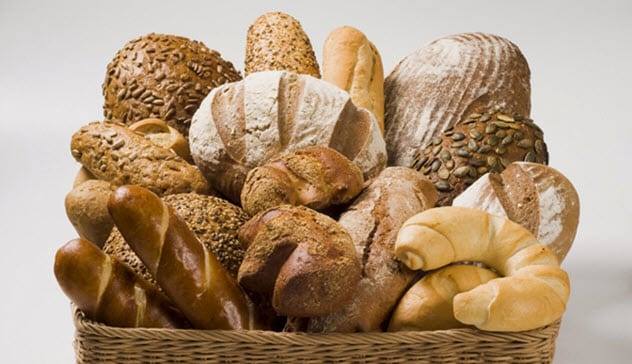
Many of the food distributions that dot the British year came about because people left money in their wills to provide them. It’s a good way to be both remembered and remembered fondly. People love free food. But it is not a foolproof way to make sure your name lives forever.
In Kidderminster an old widow who lived on Church Street left a sum of money in her will to ensure there was always a sense of community on the street. Unfortunately the name of this generous old maid has been forgotten.
On Midsummer Eve anyone who was born on the street was welcomed to come and join a feast that became known as Farthing Loaf Day. Unfortunately the money ran out due to bad investment but John Brecknell of Church Street, whose name is remembered, left £150 to the charity in 1776. He wanted a tuppenny plum-cake to be given to every child and unmarried woman on the street as well as the bread. He also gave pipes, tobacco, and ale to the men who met in friendship.
The toast given at the meeting is “Peace and Good Neighbourhood!” Food does tend to make people more neighbourly.[2]
8 Tichborne Dole
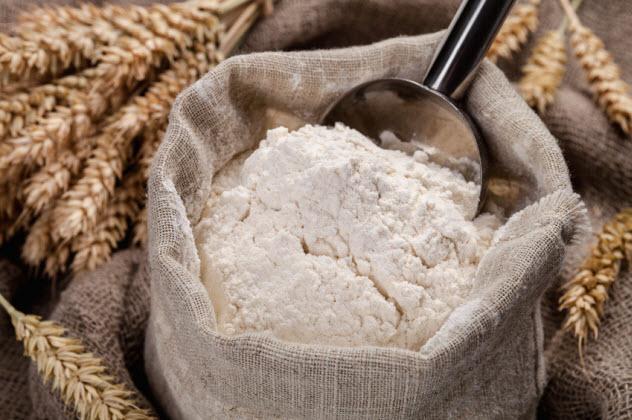
When Lady Mabella Tichborne lay dying in the 13th century she asked her husband for a relatively minor favour – distribute food to the poor. Her husband agreed but with one somewhat harsh condition. He would provide land for corn to be grown on that would be used to make bread for the needy. But he would only provide as much land as the sick lady could crawl around while holding a burning torch.
Miraculously Lady Mabella managed to cover 23 acres. That land is still known as the Crawls today and provides the flour for the Tichborne Dole which is given out every Lady Day – the 25th of March. In the past loaves of bread were given out but today anyone who attends will be given a measure of flour to bake with for themselves.
Having seen how her husband treated her request Lady Mabella is said to have added a curse. If the Tichborne Dole is ever stopped then the family will die out and the house fall down. When it was cancelled in the 18th century after the dole became too rowdy part of the house did collapse and it was hastily restarted. The Tichborne name survives to this day.[3]
7 Scrambling Cakes
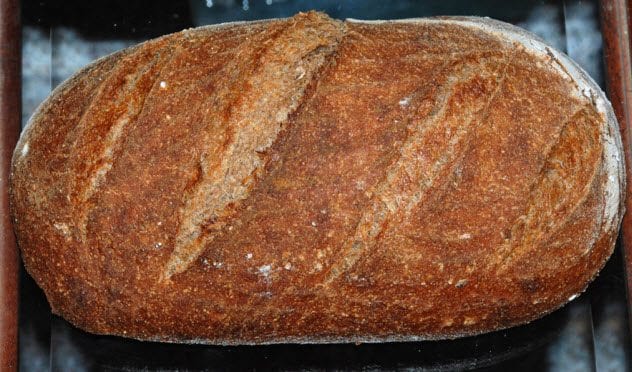
If you were lucky enough to live in Twickenham in 1367 you might have been eligible for a lovely dole of free food – some peas or beans. Unfortunately this food distribution was stopped but a tastier one was started when two “great cakes” were tossed to the poor each Easter Sunday. But as will happen when you throw two cakes to a crowd a riot would often result.
The disorder caused by the tossing of the cakes became so disruptive that the Parliament of 1645 had to step in and ban the tradition. For some reason they did not think that fighting over crumbs of cake was a particularly holy way to celebrate Jesus. They suggested that ordinary loaves of bread be substituted and this seems to have made for a quieter celebration.
A later tradition in Twickenham may be related to the scrambling for cakes and loaves. The Vicar’s Day Charity saw a local priest climb a church tower and throw loaves of bread to children below. Their scrambling for food was apparently sufficiently decorous.[4]
6 Wayfairers’ Charity
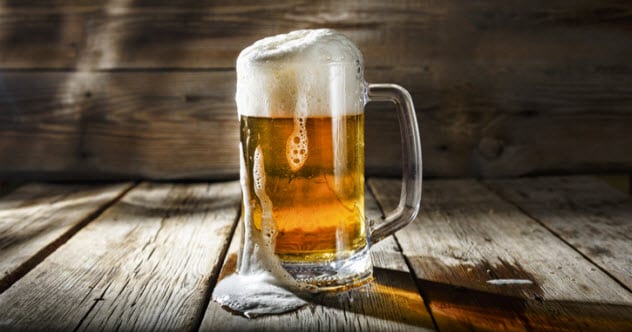
If free food is good then free booze is better. It used to be that a traveller crossing Britain could expect to find charity if they needed it in most towns and villages. Religious institutions fed people and often offered them accommodation. After the dissolution of the monasteries however this tradition mostly died out.
In Winchester however there is still one place where anyone who wants it can turn up and get a piece of bread and a mug of beer. The Hospital of St Cross and Almshouse of Noble Poverty was a charitable house founded in the 1130s. A French monk brought over the custom of distributing bread and wine to the poor – but beer was thought to be a more English drink.
Today if you want to get a small meal for free all you have to do is request it at the Porter’s Lodge. Alternatively you could become one of the 25 brothers of the house who receive an apartment to live in at a reduced rent and a subsidised two course lunch.[5]
10 Bizarre Origin Stories About Your Favorite Foods
5 Butterworth Dole
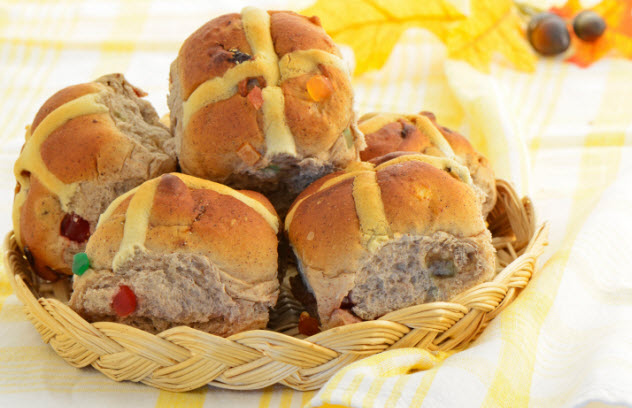
At the Church of St Bartholomew in Smithfield, London there 21 widows were once provided with a sixpence each every Good Friday. The widows would wait in the churchyard while the coins were laid out on a tombstone. They would then walk over and take their dole. No one can say who founded this tradition or when it began because of the paperwork of the church was burned in the Great Fire of London in 1666.
Over time fewer poor widows turned up to claim their coin and the charity died out. When money was left to revive the charity in the 19th century by G.W. Butterworth it came back as a distribution of both money and food to poor widows. When the widows once again dried up it the charity changed to a free dole of Hot Cross Buns – a traditional British Easter treat.
Poor widows are still welcome to attend and will be given the sixpence, or its equivalent. It stands at around 20 pence today.[6]
4 Beating the Bounds in Leighton Buzzard

Edward Wilkes built 10 almshouses to provide shelter for the poor in 1630 in memory of his father John. When Edward died he asked that beer and bread be given out every Rogation Tide and the tradition of Wilkes Walk originated to honour him.
Rogation days are often observed with a ‘beating of the bounds’ when a procession is made around the boarders of a parish to ensure that the memory of where boundaries lay was continued. On Rogation Monday in Leighton Buzzard a procession leaves All Saints Church, passes the almshouses, and into the market square. To make it memorable while the Clerk reads from Edward Wilke’s will a choirboy is hoisted by his ankles.
Buns and beer were once given out but it was found beer made for too festive an event. Then it was buns and lemonade that were distributed at the market cross. This was stopped in 1896 when thousands of buns were consumed and the ladies of the parish could not keep up. Now the buns are given out in church.[7]
3 Bull Baiting
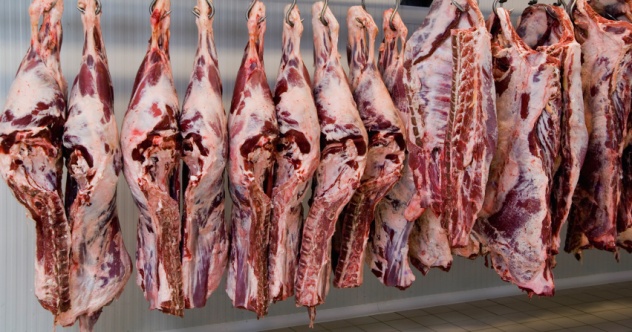
Sometimes charity, no matter how well intended, can do harm. When George Staverton died in 1661 he left a sum in his will so that the poor of Wokingham would receive both beef and leather. Unfortunately for them to get it several animals would have to die a cruel death. As a butcher Staverton left a suitably bloody legacy.
Each year just before Christmas two bulls were led through the town for everyone to see and to announce the spectacle that would follow. The bulls were not just slaughtered – they were to be baited. Bull baiting used to be a popular activity that saw tethered bulls pitted against dogs in vicious fights. Many dogs would be gored to death before the bulls eventually succumbed to their wounds. Then their meat would be handed out to the hungry.
The tradition was finally suppressed in 1821. The meat continued to be given out but the bulls were dispatched by a butcher and not dogs.[8]
2 Thomasing
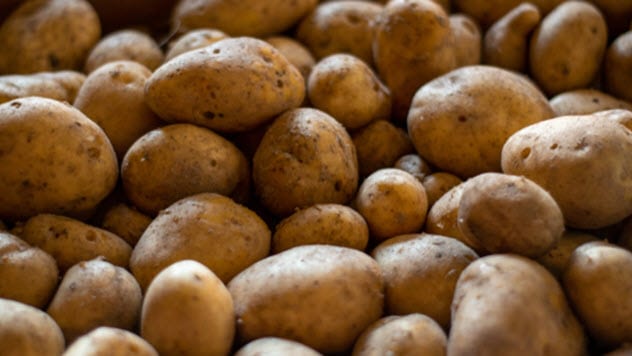
Thomasing is a tradition that used to be widespread on, appropriately, St Thomas’ Day. December 23rd was a good time for people to receive charity as it helped them celebrate Christmas in style. While some called it Thomasing it was variously known as ‘Gooding,’ ‘Corning,’ ‘Doleing,’ ‘Washaeling,’ ‘Christmasing,’ and ‘Gathering’. Some also called it ‘Mumping’ – from ‘Mompen,’ a Saxon word meaning ‘to beg.’
Thomasing saw groups of women going from house to house in their community and begging a small amount of food from each. Sometimes people would be given small amounts of flour or other ingredients to make a pudding. Other times they would be given fresh fruit of vegetables. The most popular gifts however came from those who gave out alcohol.
The tradition has mostly died out now but in the 1990s there were still some who remembered it happening. “This old lass went mumping for spuds, the farmer told her to clear off. So she said ‘You might not get a good crop next year’. The funny thing was, he didn’t.”[9]
1 Cheese Rolling
If you go to Cooper’s Hill at the right time you will see hordes of people apparently going crazy. Having waited at the top of a 200 yard slope someone shouts out:
“One to be ready!
Two to be steady!
Three to prepare!
and four to be off!”
Then they fling themselves down the hill. All of them are in pursuit of just one thing – a round wheel of Double Gloucester cheese. The annual cheese rolling event draws people from around the world who want a chance of winning a free lump of cheese. Only one person can get the cheese but hundreds of people leave with injuries ranging from bruises to broken limbs.
No one can say for sure when the first cheese rolling took place but it was first recorded 1826. Since then there have been attempts to stop the event on health and safety grounds. Since people run down the hill willingly it has come to be seen as a case of “they know the risks.”
During the Covid lockdown people could not gather to throw themselves down the hill but organisers rolled a small ceremonial cheese just to keep the tradition alive.[10]
Top 10 Bizarre And Unexpected Foods From The Real Paleo Diet








